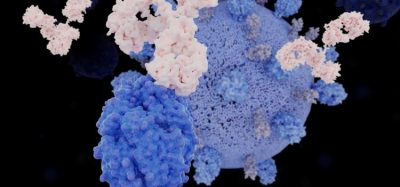Routine mass analysis enables greater productivity in biopharma development
Posted: 13 May 2019 | Mike Wilson - Director Product Marketing Mass Spectrometry Systems | No comments yet
Biopharma developers and manufacturers need to know their molecules and understand their manufacturing processes better than ever before. In this article, Mike Wilson discusses the benefits of mass analysis in biopharma and the current challenges of adopting new technologies.


In the biopharmaceutical industry, the cost of failure – or not failing fast enough – can be high. Recently, a large biopharma company reportedly paid a termination fee of around $155 million to their partner after halting commercialisation of a biosimilar. Three years after initiating their commercialisation project, the company cited the cost of manufacturing the drug as too high and its projected selling price too low to justify bringing it to market.1 Here, in a nutshell, is the challenging reality for biopharma today. Not only must companies grapple with increasingly complex large molecules and regulatory requirements that are becoming more stringent, they must also find ways to develop, manufacture and analyse these molecules in a more efficient and cost-effective manner. Regulatory bodies around the world are continuing to update their guidance for the industry with more exacting requirements for analyte monitoring in development and QC.2 Both the US FDA and the European Committee for Medicinal Products for Human Use have recently rejected biologic license applications (BLAs) due to insufficient data concerning overall quality, impurities and stability.3,4
Knowledge and understanding
The message is clear: biopharma developers and manufacturers need to know their molecules and understand their manufacturing processes better than ever before. Yet the volume of attribute testing for large molecules is already high – roughly five to 10 times that used for small molecules.5 Adding more testing to this load does not in itself result in better analysis and understanding, and it certainly won’t help these companies to be more productive. Instead, better testing makes for better understanding, and for the biopharma industry that will mean making better techniques more accessible. Gold standard techniques, such as liquid chromatography-mass spectrometry (LC-MS) analysis, must become routine. LC-MS analysis offers the ability to directly measure multiple molecular properties/attributes simultaneously, often with greater sensitivity and selectivity than can be achieved by more traditional assay techniques. Highly trained MS specialists, who have spent years learning the relevant instruments and techniques, carry out upstream “characterisation” work for biologics through which a quality target product profile (QTPP) for each drug candidate is established. QTPPs typically include a full array of molecular attributes that should ideally be monitored throughout ongoing development work, including analytical method development and optimisation, clone selection, process development, formulation development and stability testing; in keeping with Quality by Design (QbD) principles. Through extensive development testing, a subset of these attributes is then defined as critical quality attributes (CQAs). If altered, these attributes could potentially impact the purity, safety and/or efficacy of the final biotherapeutic drug product. Broader access to LC-MS analysis for monitoring of product attributes throughout late-stage development, manufacturing and even QC would not only enable better, more precise data to be captured, but it could also be carried out more efficiently.
Future promise
LC-MS’s great promise for routine monitoring begs the question: just when will it become a true bedrock analytical tool for scientists and technicians throughout biopharma? As development and therapeutic use of biologics grows, expanding access to high-powered LC-MS analysis – in other words, making LC-MS monitoring routine – will increase in importance. As that importance grows, biopharmaceutical laboratories must increasingly explore how to use techniques such as multi-attribute monitoring (MAM) and LC-MS assays to monitor the CQAs of biologics during drug development. MAM assays offer the promise of detecting and measuring multiple CQAs simultaneously, which can streamline analytical workflows that have previously taken place in parallel, time-consuming processes.
Two MAM approaches for biotherapeutic analysis are commonly implemented today:
1. Analysis of monoclonal antibody (mAb) subunit mass
2. Analysis of peptides from a protein digest – a peptide-mapping workflow.
Subunit mass MAM assays can be limited in their ability to monitor small mass changes, such as deamidations, and they are unable to generate site-specific information when multiple modifications are located on the same subunit fragment. In these situations, peptide-based analyses are viewed as complementary workflows. High-resolution MS and liquid chromatography quadrupole time-of-flight (LC-QTOF) MS peptide mapping methods are indispensable for in-depth protein characterisation during biotherapeutics development, whereas optical detection is widely used for peptide mapping identity tests during QC product release. Recently, LC-UV-MS peptide mapping methods have been developed for product identity release assays, taking advantage of the selectivity and specificity offered by MS detection. The key benefit of a peptide mapping MAM approach is that it offers site-specific direct assessment of product quality attributes, and this has received significant interest in recent years.
The following are further examples of its application:
Amgen has been pioneering the deployment of a peptide mapping multi-attribute methodology to streamline biotherapeutics development and QC testing. In a 2015 publication, Amgen researchers described their efforts to monitor multiple product attributes for characterisation and process development using high-resolution MS analysis and shared their vision of a multi-attribute methodology workflow that can greatly reduce the number of assays needed during process development and quality control.6
Roche Diagnostics published details of a peptide MAM approach for high-throughput sample preparation along with LC-MS analysis for quantification of deamidation, isomerisation, oxidation and glycosylation.7
In both studies, comparable results were obtained using a peptide mapping MAM method as with conventional optical detection assays. However, peptide mapping MAM using the highly complex research-grade mass spectrometers and informatics tools demonstrated in these studies could be quite challenging to deploy by regulated late development and QC laboratories. In a recent internal survey of biopharmaceutical scientists, nearly 70 percent of respondents indicated that they expected to see a significant increase of MS utilisation in regulated development and QC in the future.
However, they believe the biggest challenges to wide adoption lie in overcoming the high costs and complexity of operating and maintaining these advanced tools in regulated laboratory environments, and ensuring consistent, robust performance – as well as addressing data integrity and compliance. Many biopharmaceutical companies are working on developing analytical platform solutions that support routine biopharmaceutical analyses and that can transcend the traditional silos of the discovery, development and manufacturing/QC pipeline. As such, fit-for-purpose deployment, ease-of-use and compliance are all factors that should be considered early on when adopting MAM methods.
Biography
MIKE WILSON achieved his PhD from the University of York, UK, where he developed innovative MS approaches for investigating the structure and fate of photosynthetic pigments in living organisms and historic environments. He then worked in the pharmaceutical industry as a characterisation specialist, where he developed his interest in the application of MS for creative problem solving, as well as coaching others in this approach. Mike has held roles within Service and Product Development at Waters, prior to his current role in Product Marketing.
References
1. Stanton D. Merck drops Lantus biosimilar, blames pricing and production cost concerns. Bioprocess International. (2018)
2. U.S. Department of Health and Human Services, Food and Drug Administration, Center for Drug Evaluation and Research (CDER), Center for Veterinary Medicine (CVM). Bioanalytical Method Validation: Guidance for Industry. (2018).
3. Scavone C, Rafaniello C, Berrino L, Rossi F, Capuano A. Strengths, weaknesses and future challenges of biosimilars’ development. An opinion on how to improve the knowledge and use of biosimilars in clinical practice. Pharmacol Res. 2017;126:138–142.
4. Price WN, Rai AK. Manufacturing Barriers to Biologics Competition and Innovation. 101 Iowa L. Rev. 1023 (2016).
5. Imarc Global Biopharmaceutical Market Report and Forecast 2012-2017.
6. Rogers, et al. Development of a quantitative mass spectrometry multi-attribute method for characterization, quality control testing and disposition of biologics. MAbs. 2015; 7(5):881–890.
7. Bomans, et al. Multi-attribute monitoring of antibody modifications by semi-automated liquid chromatography mass spectrometry peptide mapping. American Pharm. Review, 2016; 16-21.
Issue
Related topics
Analytical techniques, Biologics, Biopharmaceuticals, Liquid Chromatography - Mass Spectrometry (LC-MS), Quality by Design (QbD)
Related organisations
Amgen, European Committee for Medicinal Products for Human Use, Roche Diagnostics, US FDA








